PsychNewsDaily Publishers
100 Summit Drive
Burlington, MA, 01803
Telephone: (320) 349-2484
PsychNewsDaily Publishers
100 Summit Drive
Burlington, MA, 01803
Telephone: (320) 349-2484
Oklahoma offers various no-cost mental health support services, including the 988 Mental Health Lifeline, crisis intervention, telehealth, and specialized programs for veterans and youth.
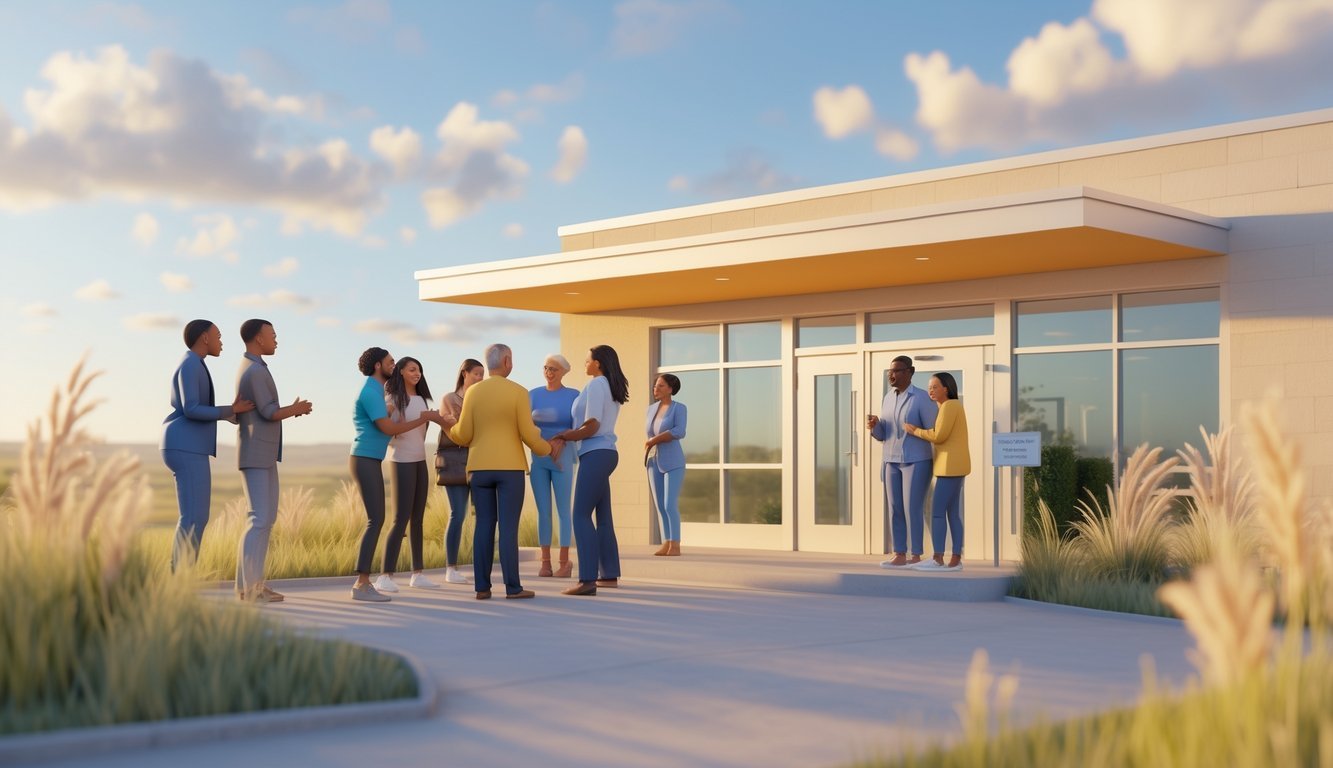
Looking for free mental health support in Oklahoma doesn’t have to feel overwhelming or out of reach. Oklahoma actually has a bunch of no-cost mental health services through state programs, local organizations, and crisis support systems that cover every county. Whether you’re struggling with depression, anxiety, substance use, or just need someone to talk to, there’s help close by.
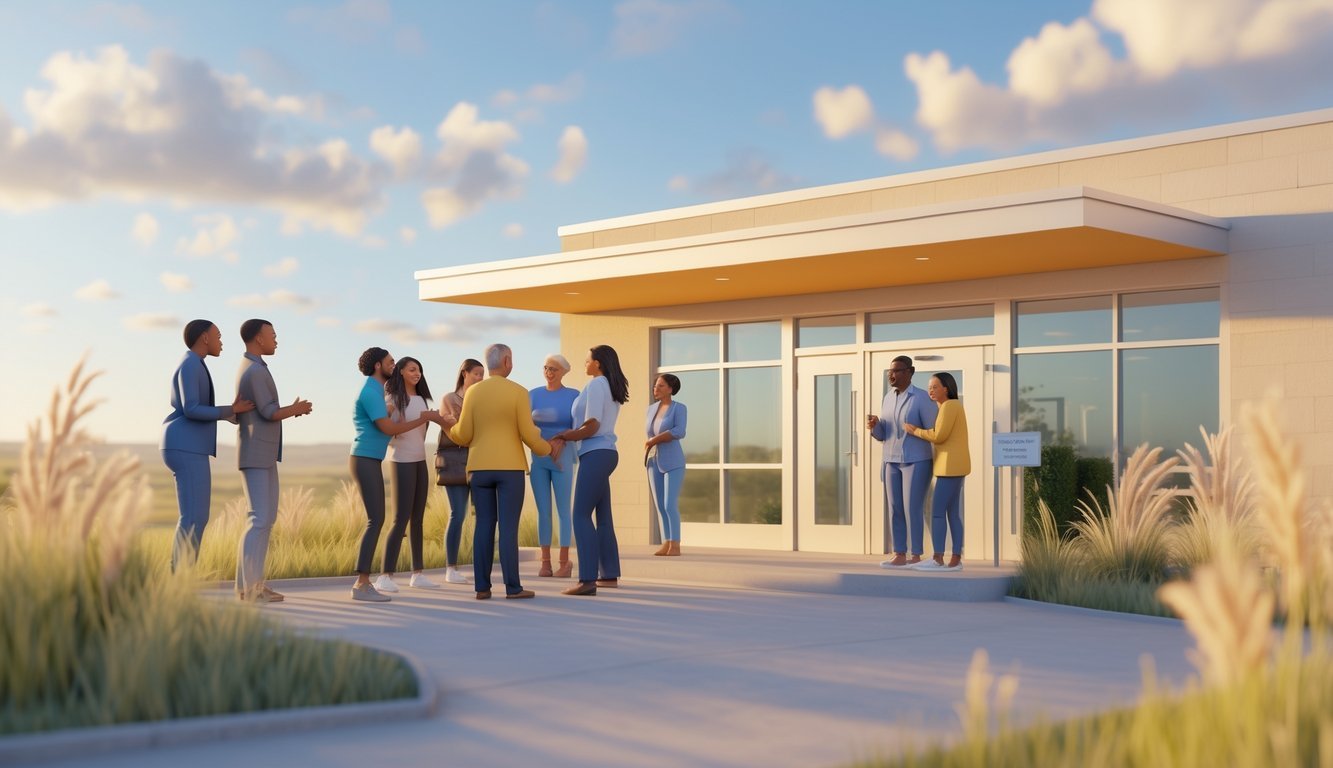
The state has put a lot into making mental health care easier to access in the past few years. Oklahoma’s 988 Mental Health Lifeline has helped more than 178,000 residents get immediate support since it started three years ago.
This simple number gives you 24/7 crisis intervention and connects you to local resources.
You’ll find info about regional services, peer support, and community advocacy groups that can offer the mental health help you’re looking for. From Oklahoma City and Tulsa to tiny rural towns, free services aim to meet you where you are and offer the care you deserve.
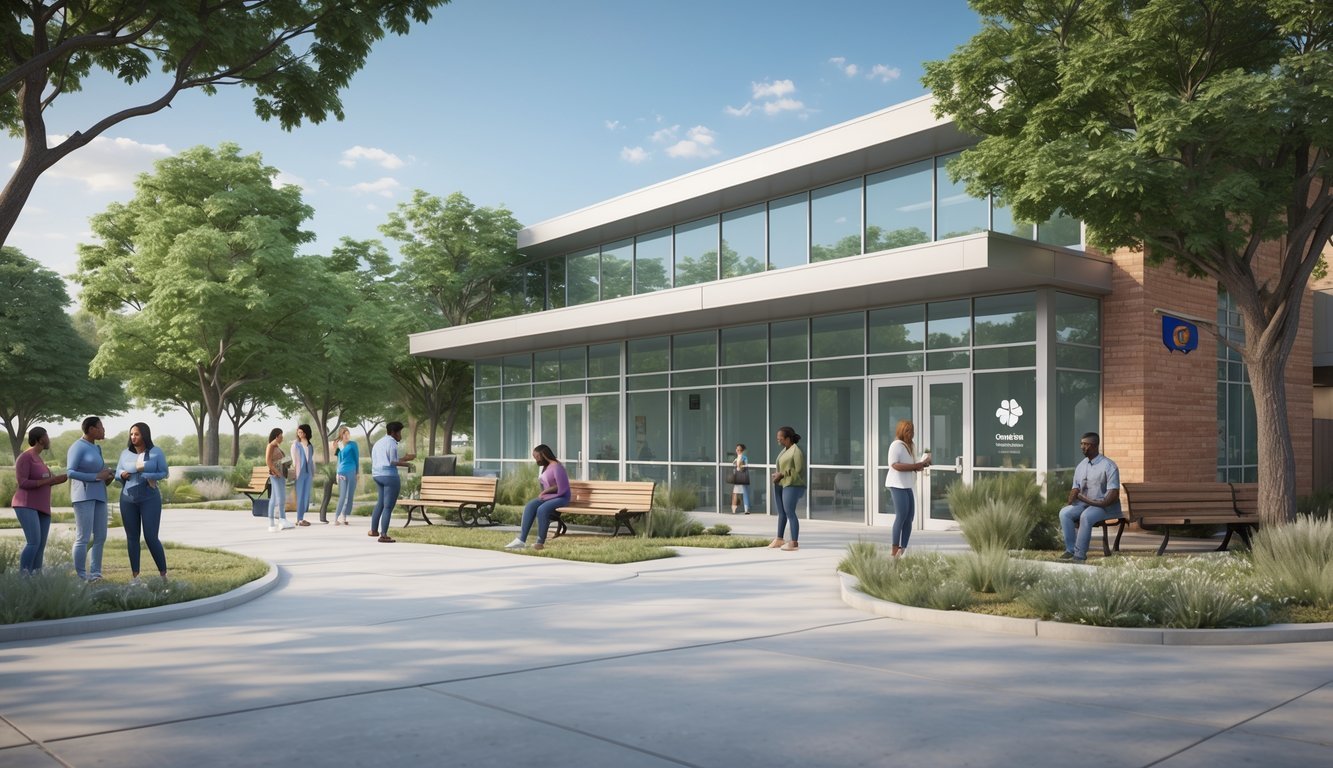
Oklahoma gives you several free mental health resources through state programs, crisis services, and local organizations. The 988 Mental Health Lifeline has helped over 178,000 Oklahomans since 2022, and most crises get resolved right over the phone.
The 988 Oklahoma Mental Health Lifeline acts as the main statewide crisis service. You can call or text 988 for free, confidential support any time, day or night.
Solari Crisis & Human Services runs Oklahoma’s biggest 988 call center. They connect you with trained behavioral health pros when you’re in crisis.
The Oklahoma Department of Mental Health and Substance Abuse Services (ODMHSAS) runs the state’s behavioral health safety net. They coordinate mobile crisis teams and help you find nearby Urgency Recovery Clinics and Crisis Centers.
University-based services include:
Crisis intervention services handle urgent mental health emergencies. Nearly 87 percent of crises get resolved over the phone without needing police or ambulances.
Virtual mental health care covers:
Mobile crisis response teams show up in person if phone help isn’t enough. These teams come to you during serious mental health emergencies.
Specialized programs focus on things like substance use, depression, anxiety, and suicidal thoughts. Most people call for help with suicidal thoughts, depression, anxiety, or care coordination.
You don’t need to meet any eligibility rules for the 988 Mental Health Lifeline. It’s open to everyone, no matter your income, insurance, or where you live in Oklahoma.
Student services require you to be enrolled:
Geographic coverage is statewide. Services reach rural areas, Oklahoma City, and Tulsa just the same.
Age restrictions depend on the program. Most adult services are for people 18 or older, but some help kids and teens.
You won’t need insurance or money for crisis services. Emergency mental health help stays available, no matter your ability to pay.
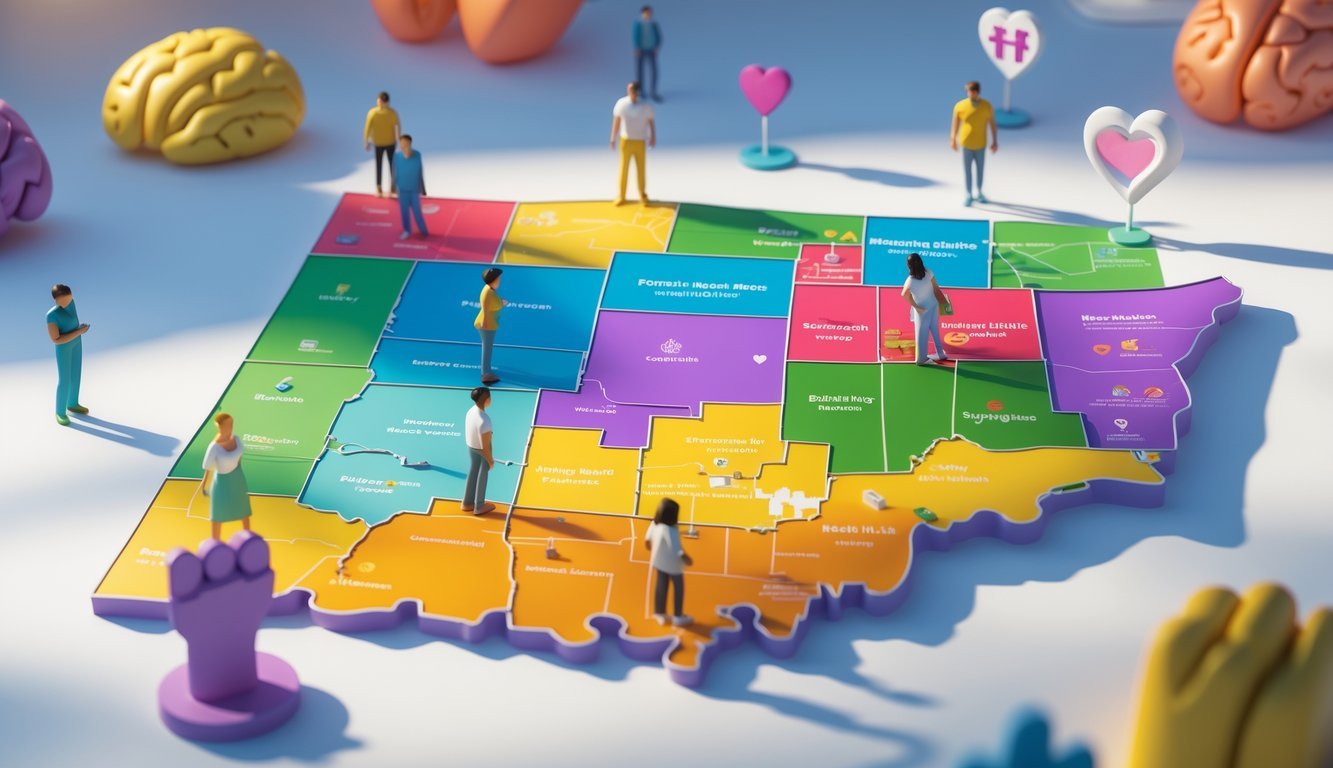
Where you live in Oklahoma changes how you’ll find mental health services. Bigger cities like Oklahoma City and Tulsa have more options, while rural areas use special programs to fill the gaps.
Oklahoma City has several big mental health providers that offer free help. The 988 Mental Health Lifeline covers every county with 24/7 crisis support.
You can find services at several Oklahoma County spots:
Tulsa has similar support through regional centers. Both cities can send mobile crisis teams if phone support isn’t enough.
Key Services Available:
Most problems get solved over the phone. About 87% of crises don’t need emergency crews or police.
Rural Oklahoma uses special programs to help people get mental health care. The Oklahoma Office of Rural Health works with local groups to make healthcare better and easier to reach.
Rural Access Options:
You can call 988 from any rural spot in Oklahoma. The service connects you to people who get what rural life is like.
Transportation can be a big hurdle in rural areas. Many providers offer phone or video sessions to help with that.
Finding Local Help:
Oklahoma City:
Tulsa:
Midwest City:
The DHS office at 9901 S.E. 29th St. offers mental health referrals and serves all counties.
Norman:
Stillwater:
Oklahoma State University has counseling including psychiatric care, clinical services, and support for students and the community.
Smaller Cities:
Most smaller towns connect to regional providers. Call 988 from anywhere to find the nearest free help.
Statewide Resources:
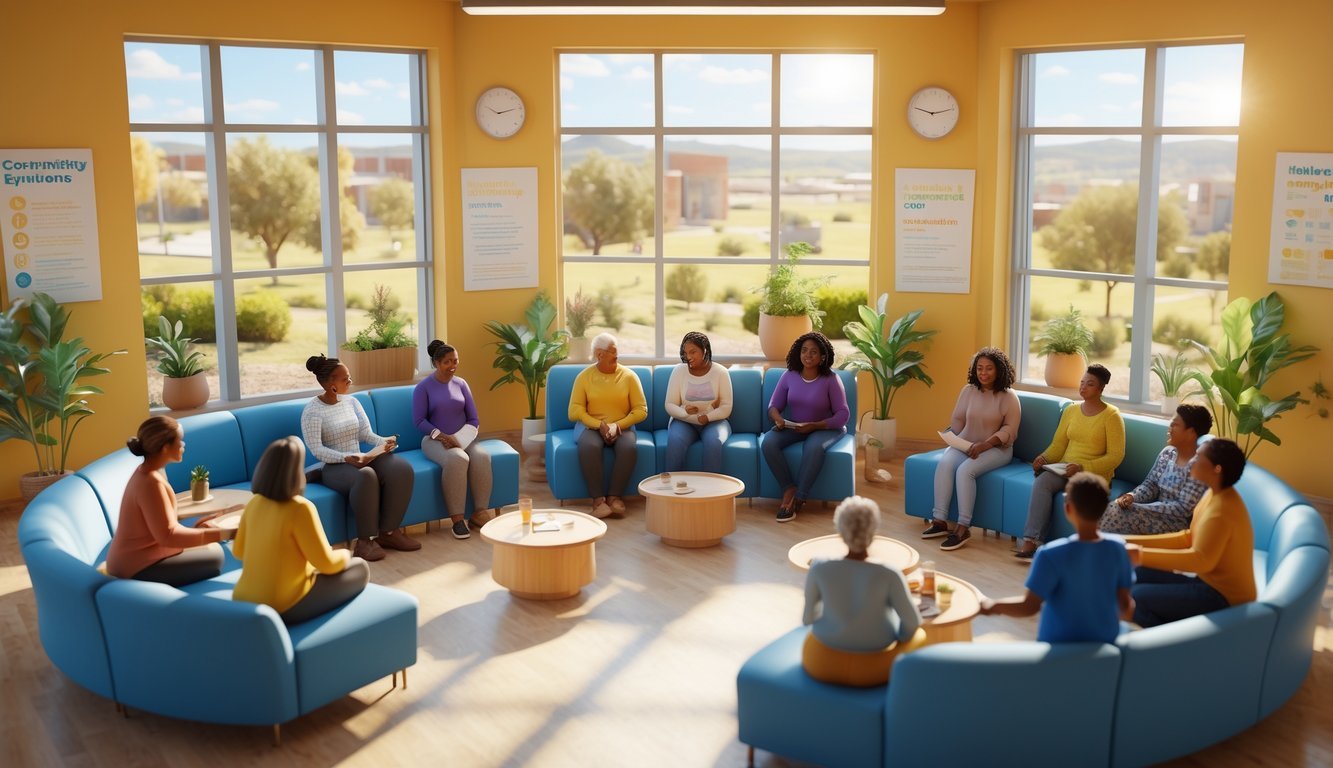
Oklahoma has mental health programs for certain groups and situations. These include peer-led recovery, 24/7 crisis support, and care for veterans, kids, and other vulnerable folks.
Peer support groups let you connect with people who’ve been through similar mental health struggles. People who’ve recovered themselves usually run these groups.
You’ll find support for things like depression, anxiety, bipolar disorder, and substance use. Many groups meet weekly at community centers, hospitals, or clinics across Oklahoma.
NAMI Oklahoma runs several peer support options:
Recovery programs help you build life skills and stay well long-term. They often mix group therapy, mentorship, and help with things like housing or finding work.
A lot of programs use WRAP (Wellness Recovery Action Plan). This helps you make your own wellness toolkit and crisis plan.
Oklahoma’s 988 Mental Health Lifeline has helped over 178,000 people since it started three years ago. You can call or text 988 anytime for free crisis support.
The service runs 24/7. Trained counselors help with suicidal thoughts, depression, anxiety, and substance use.
Key features of 988:
When you call 988, you talk to Oklahoma-based counselors who know local resources. They can connect you to nearby Urgency Recovery Clinics or Crisis Centers if you need in-person help.
Crisis intervention teams also work with police to bring mental health expertise during emergencies. This helps you get the right care instead of ending up in trouble.
Veterans can get specialized mental health services through VA centers and community programs. These cover PTSD, military trauma, and combat stress.
Kids and teens have school-based counseling, family therapy, and crisis intervention just for young people. University counseling services support college students with academic stress and mental health challenges.
Special population services:
The Center on Child Abuse and Neglect offers trauma-informed care for kids who’ve experienced abuse. This treatment helps children heal and build resilience.
Rural communities get help from mobile crisis units and telehealth. That way, you can find mental health care even in remote parts of Oklahoma.
Oklahoma communities have extra support programs outside traditional counseling. These include faith-based help, housing support, and job assistance to meet the bigger needs of people seeking mental health care.
Many non-profits in Oklahoma offer mental health help through community programs. These groups often run support groups where you can meet others facing similar struggles.
Faith-based organizations sometimes provide counseling at lower costs or sliding scales. Churches and religious centers host support groups for grief, addiction recovery, and anxiety.
Community centers in places like Oklahoma City and Tulsa run peer support programs. Volunteers with lived experience pair up with you for support.
Local non-profits also work with state programs to help you get mental health services. They can help with paperwork, rides, and finding care that fits your needs.
A few programs in Oklahoma bring together mental health support and everyday life services. They get that having a steady place to live and a job makes a big difference for mental health.
Youth-focused programs reach people ages 15-24 and offer all-around support. You’ll find job skills training, help with resumes, and trauma counseling.
Community organizations step in with:
You might see some programs running community gardens or food pantries. These options ease the stress of daily needs and give people a chance to connect through group activities.